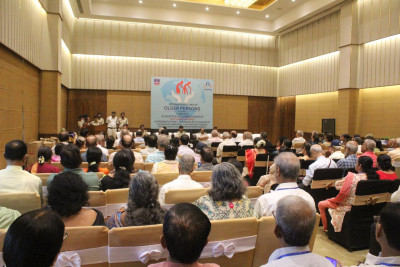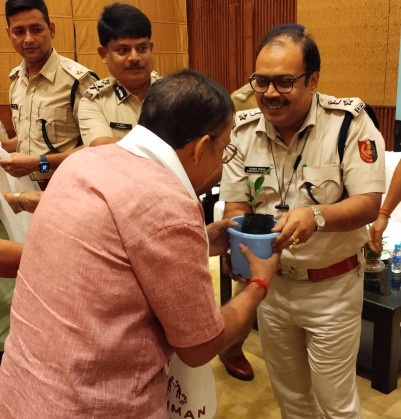PERSONAL SAFETY (LESSON 1)
The following are tips that can help you avoid becoming a victim of a crime when you are out and about, or working at your job.
At Home
Always leave your headlights on when arriving home after dark until you have unlocked the garage door, or unlocked the front door.
When arriving home by private auto or taxi, ask the driver to wait unto you are safely inside.
Have the door key in your hand so you can open the door immediately when you return home.
If you are a woman alone, list only your first initial and last name on the mailbox, or in the telephone directory.
When moving into a new apartment or residence, ALWAYS have the locks re-keyed, or changed.
If Someone Tries To Rob You
Report the crime to the police. Try to describe the attacker accurately. Your actions can help prevent others from becoming victims.
Basic Street Sense
Wherever you are - on the street, in an office building or shopping mall, driving, waiting for a bus or subway - stay alert and tuned in to your surroundings.
Send the message that you're calm, confident, and know where you're going.
Trust your instincts. If something or someone makes you uneasy, avoid the person or leave.
Think ahead and plan your journey, avoiding deserted areas
In the dark, always stick to well-lit areas.
If you think you are being followed, cross the road.
If you start to be frightened, try not to panic. Always try to think around situations.
PERSONAL SAFETY (LESSON 2)
Safety Tips For women
Awareness: Your first line of defence. Most people think of kicks to the groin and blocking punches when they hear the term “self-defence.” However, true self-defence begins long before any actual physical contact. The first, and probably most important, component in self-defence is awareness: awareness of yourself, your surroundings, and your potential attacker’s likely strategies.
The criminal’s primary strategy is to use the advantage of surprise. Studies have shown that criminals are adept at choosing targets who appear to be unaware of what is going on around them. By being aware of your surroundings and by projecting a “force presence,” many altercations which are commonplace on the street can be avoided.
Use your sixth sense. “Sixth sense.” “Gut instinct.” Whatever you call it, your intuition is a powerful subconscious insight into situations and people. All of us, especially women, have this gift, but very few of us pay attention to it. Learn to trust this power and use it to your full advantage. Avoid a person or a situation which does not “feel” safe–you’re probably right.
Escape: Always your best option. What if the unthinkable happens? You are suddenly confronted by a predator who demands that you go with him–be it in a car, or into an alley, or a building. It would seem prudent to obey, but you must never leave the primary crime scene. You are far more likely to be killed or seriously injured if you go with the predator than if you run away (even if he promises not to hurt you). Run away, yell for help, throw a rock through a store or car window–do whatever you can to attract attention. And if the criminal is after your purse or other material items, throw them one way while you run the other.
Your right to fight. Unfortunately, no matter how diligently we practice awareness and avoidance techniques, we may find ourselves in a physical confrontation. Whether or not you have self-defence training, and no matter what your age or physical condition, it is important to understand that you CAN and SHOULD defend yourself physically. You have both the moral and legal right to do so, even if the attacker is only threatening you and hasn’t struck first. Many women worry that they will anger the attacker and get hurt worse if they defend themselves, but statistics clearly show that your odds of survival are far greater if you do fight back. Aim for the eyes first and the groin second. Remember, though, to use the element of surprise to your advantage–strike quickly, and mean business. You may only get one chance.
A travel tip. Violent crimes against women happen in the best and worst hotels around the world. Predators may play the part of a hotel employee, push their way through an open or unlocked door, or obtain a pass key to the room. As with home safety, never open your door unless you are certain the person on the other side is legitimate, and always carry a door wedge with you when you travel. A wedge is often stronger than the door it secures.
Safety in cyberspace. Although the Internet is educational and entertaining, it can also be full of danger if one isn’t careful. When communicating on-line, use a nickname and always keep personal information such as home address and phone number confidential. Instruct family members to do the same. Keep current on security issues, frauds, viruses, etc. by periodically referring to “The Police Notebook” Internet Safety Page.


 Kavach App
Kavach App

















